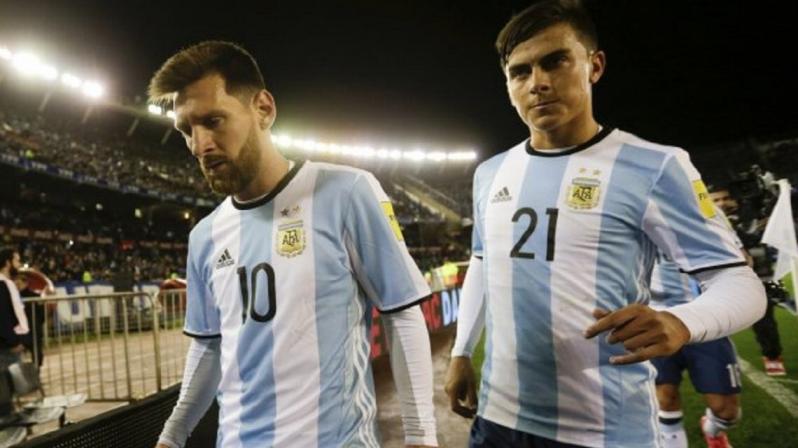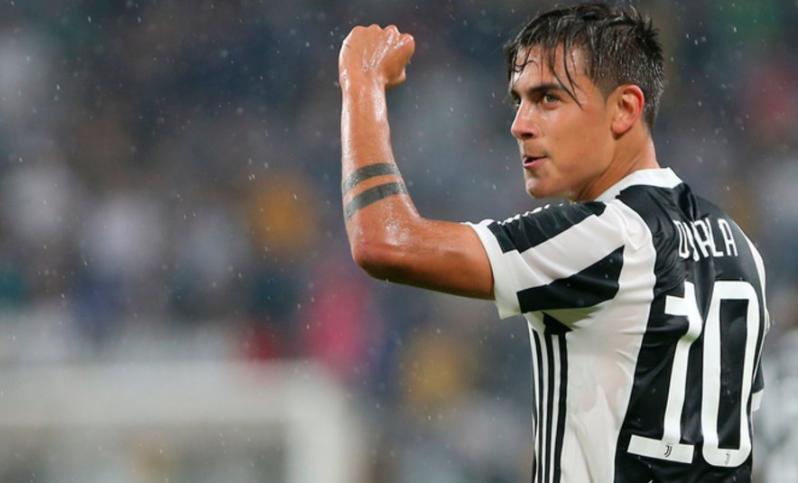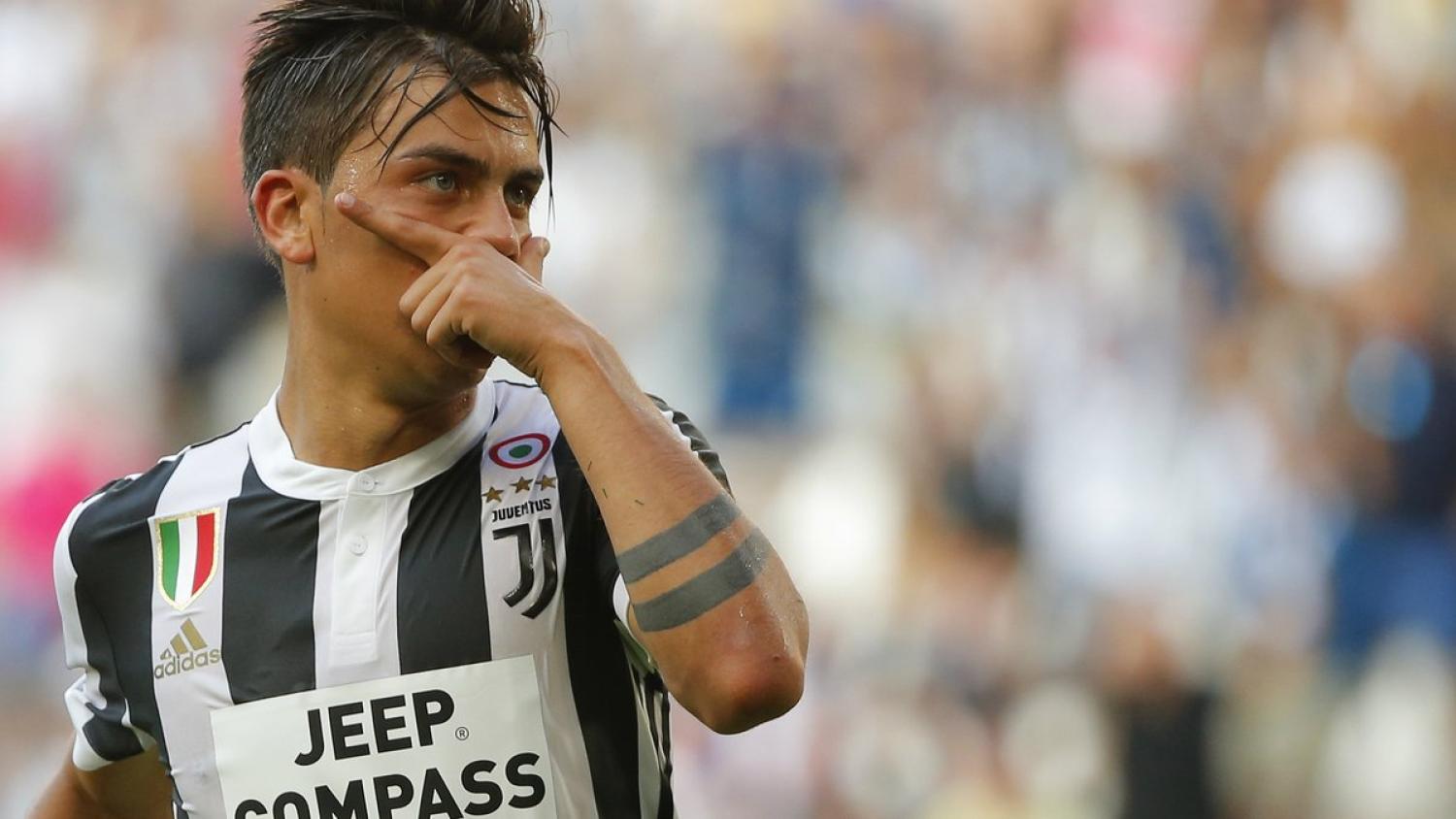It’s time to talk about Paulo Dybala. Actually, it was probably time to talk about Dybala two months ago, when he was rightly titillating the interest of the Barcelona board, possibly plugging a recently-emerged Neymar-sized hole in their starting XI. But even since then, Dybala has gone to a whole new level. Is it time to start talking about Dybala as being one of the very best in the world?
In 2016, when Paul Pogba left Juventus for a then-world record sum, one of the most overlooked questions was: What happens to his shirt? The previous year, Pogba had taken on the mantle of the number 10. In world football, there are few shirt numbers so storied as the Juventus 10, whose past occupants have included Liam Brady, Michel Platini, Roberto Baggio and, of course, Alessandro Del Piero. Pogba had seemed a decent fit for the shirt, but his departure left a sour taste in a few fans’ mouths. The ten was mystical. It was meant to matter. Pogba had barely settled into the number before he was shipped out.
So this summer, the empty 10 loomed large. It had laid dormant for a year, the club seemingly wanting to avoid passing it around post-Pogba, especially if the player was going to be sold a year later. There were rumors that Federico Bernardeschi might pick it up — the same shirt number he had worn at Fiorentina — but it was offered to Dybala. It fit perfectly.
Since moving to Juventus from Palermo for €40 million in 2015, the Argentine had steadily become the most important player at the club. Gonzalo Higuain was the most expensive; the defense had the most reliable players. But it was Dybala who made Juventus Juventus. Miralem Pjanic can control games, Mario Mandzukic can score goals. But Dybala is that little bit of magic on top of that, the kind of player who elevates a team to the next level. The 23-year-old became the new Juventus number 10 and, since then, he’s been amazing.
This season, after 10 goals in six Serie A games, Dybala is making a real impression. And these aren’t just late-game goals to pad the stats. He’s scored vital, essential goals, which have helped Juventus to a perfect start. He scored the second in an opening-day win over Cagliari. He scored a hat trick against Genoa, dragging Juventus back into a game when it had conceded two early goals. There was another goal against Chievo; another Dybala hat trick against Sassuolo. He blanked against Fiorentina but scored a brace in the derby against Torino. Keep this up this pace and he’ll end the season on 60-plus goals. Those are Ballon d’Or numbers.
But goals are not Dybala’s whole game. Juventus has a plethora of strikers. They don’t need Dybala to be scoring every single match, though it certainly helps. Indeed, Dybala doesn’t play as a proper striker. He plays just behind, in the space between the lines, and wanders where he pleases, picking positions from which he can do the most damage.
There’s an old clichéd adage, “grabbing a game by the scruff of the neck.” It’s something British pundits of a certain generation go on and on about in their post-match analysis. But there’s something to be said for the idea when we’re talking about Dybala. If he so chooses, he can float above a game, dictating the entire tempo of the game simply with his positioning. The team moves around him, the opposition hopelessly trying to mark or deal with him. He forces teams to react and punishes them when they’re too slow.
The match against Genoa was perhaps the best example of this. Juventus conceded twice in the opening 10 minutes. Journalists were already beginning to write up articles wondering whether this was the season Juventus finally lost the league. And then Dybala happened. It wasn’t just the three goals he scored. He pummeled the Genovese defense, dominated the midfield and final third. Not playing in any one fixed position, he moved through the game at his own pace. It was the closest to a Messi performance from any player who isn’t Messi. It was fantastic.
But this brings us to the problem. Dybala is a Juventus player but, when evaluating his performances, it’s Barcelona who is the reference point. There are two reasons for this: comparisons to Messi and a seeming inability to perform on the biggest stages.
The comparisons to Messi are obvious. Goal-scoring Argentine playmakers who can do everything on the pitch. Being compared to the greatest player of all time, it’s no wonder that Dybala doesn’t do too well out of the comparisons. He’s firmly in Messi’s shadow in the national set-up, for example, with questions over whether Sampaoli can play both of them together. They’re too similar, if anything. They play in the same spaces. Too often, Dybala is accused of being nothing more than Messi muscle memory.
It’s supposedly why Barcelona didn’t firm up their undoubted interest in the Juventus player over the summer. Could he play in the same side as Messi? Evidence with the national team suggestions that it would be difficult.

Lionel Messi and Paulo Dybala. Photo: @Manumartin01 | Twitter
Dybala will always be compared to Messi and will never be as good as Messi. It’s unfortunate, but it’s no great insult to come second place in such a comparison. Every other player in history would suffer the same fate.
But that brings us to the second, more stinging criticism. Big games. Dybala can be devastating in Serie A, but there have been questions asked about him when it really matters. Juventus want to dine at the top table in Europe. That means winning the Champions League. They’ve come close recently, but Dybala hasn’t quite been able to transfer his form over to continental competition.
Thrashing Genoa and beating up a ten-man Torino is all well and good, but Dybala has yet to have a truly momentous European game. Injury kept him out of the Champions League loss to Bayern in his first season, but Dybala helped Juventus to the final last year. Fans would herald the consummately professional performances against Barcelona in the semifinals, matches in which Dybala did indeed play well.
But those matches were built on a rock of an excellent defense; Barcelona was a wounded animal, scraping past PSG in one of the greatest comebacks of all time. They seemed to have nothing left. There were mitigating circumstances. What’s more, when a weakened Barcelona was drawn in the same group as Juventus this year, Dybala disappeared into the depths of the Camp Nou. On that occasion, Messi showed the world the gulf in class between the two players.
Perhaps the most obvious of these big games was the Champions League final. This was the big chance. This was Dybala’s opportunity to announce himself on the world stage and include himself in discussions for the greatest platitudes, to take the trophy back to Turin and be treated as a god. He picked up a yellow card in the 12th minute and strolled through the game like a ghost. It was a huge let down. It caused a ruckus in the dressing room, the aftermath of which might have played a role in Leonardo Bonucci leaving for Milan. No one was happy. It was a huge failure and a missed opportunity.

Photo: @ADP1113 | Twitter
This season, Dybala has started in scintillating form. He is already the best player in Serie A, where only Dries Mertens comes close to providing competition. In an age of €200 million transfers, Dybala could potentially fetch that much and not many people in Italy would blink an eye.
But he seems to have come up against an invisible wall. The best and the biggest games. Those are the matches where Dybala needs to make a difference. If he was to be sold, Juventus would demand an eye-watering sum. But, until Dybala really flexes his muscles in the Champions League, who would pay it?
Dybala is on the cusp of being truly special. If he can take that last step and deliver when it really, really matters, he could be the key to Juventus transferring its domestic form to the European stage. Dybala has to stop controlling single games and start dominating continental competitions. He has the potential, now he has to realize it.





